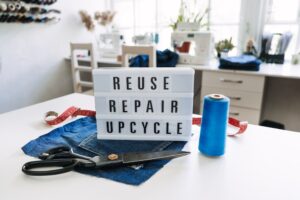When it comes to footwear, finding the perfect fit can be challenging for anyone. But for individuals with disabilities, the task can be even more daunting. Shoes that don’t fit properly can cause discomfort, pain, and even injury, making it crucial to find shoes that provide the right amount of support, stability, and comfort. In this blog post, we’ll discuss some tips for buying shoes for people with disabilities to help ensure that they find the perfect fit.
Assessing Foot Needs
The first step in buying shoes for someone with a disability is to assess their specific needs. This involves understanding the individual’s foot size and shape, as well as any foot conditions or sensitivities they may have. For example, some people may have flat feet or high arches, while others may have conditions such as arthritis or diabetes that require specialized footwear.
Determining Foot Size and Shape
The best way to determine an individual’s foot size and shape is to have them measured by a professional. Many stores that specialize in adaptive footwear have staff members who are trained to measure feet accurately and recommend shoes that are a good fit. Alternatively, individuals can measure their feet at home using a tape measure or a foot measuring device.
Identifying Any Foot Conditions or Sensitivities
It’s important to identify any foot conditions or sensitivities that the individual may have, as this will help determine the type of shoes that are most appropriate. For example, individuals with diabetes may need shoes that provide extra cushioning and support to prevent foot injuries, while those with arthritis may require shoes that are easy to put on and take off.
Types of Adaptive Footwear
Once you’ve assessed the individual’s foot needs, it’s time to consider the different types of adaptive footwear that are available. There are several types of adaptive footwear that are designed to provide extra support, stability, and comfort for people with disabilities.
Orthopedic Shoes
Orthopedic shoes are designed to provide extra support and stability for individuals with foot conditions or injuries. They often have a wider toe box, a firm heel counter, and a thick, supportive sole. Orthopedic shoes are also available in a range of styles and designs, so individuals can find a pair that suits their personal style.
Custom Shoes
For individuals with severe foot conditions or deformities, custom shoes may be the best option. Custom shoes are made to fit the individual’s foot exactly, taking into account their specific foot shape and any abnormalities. Custom shoes can be expensive, but they can provide the best possible fit and comfort for individuals with complex foot needs.
Shoes with Adjustable Features
Many shoe manufacturers now offer shoes with adjustable features, such as Velcro straps or laces that can be adjusted for a more customized fit. These shoes are a good option for individuals who need extra support or have trouble putting on or taking off traditional shoes.
Specialized Shoes for Specific Disabilities
There are also specialized shoes available for individuals with specific disabilities. For example, diabetic shoes are designed to provide extra cushioning and support to prevent foot injuries, while shoes for individuals with cerebral palsy may have a wider base for added stability.
Key Features to Look for in Shoes
When shopping for shoes for someone with a disability, there are several key features to look for to ensure a comfortable and supportive fit.
Comfort and Help
Comfort and support are the most important factors to consider when buying shoes for someone with a disability. Look for shoes that have a cushioned insole, a supportive midsole, and a firm heel counter. The shoe should also have enough room in the toe box to allow for natural movement of the toes.
Cushioning and Shock Absorption
Cushioning and shock absorption are also important features to look for in shoes for individuals with disabilities. These features help to reduce the impact of walking or standing on the feet, which can be particularly important for individuals with conditions such as arthritis or plantar fasciitis. Look for shoes with a thick, cushioned sole and a shock-absorbing midsole for the best comfort and support.
Lightweight Materials
Lightweight materials such as mesh, canvas, or synthetic fabrics can help to reduce the weight of the shoe, which can be particularly important for individuals with mobility impairments. Heavy shoes can make it more difficult to walk or move around, so look for shoes that are made from lightweight materials.
Slip-Resistant Soles
Slip-resistant soles can help to prevent falls and slips, which can be particularly important for individuals with mobility impairments or balance issues. Look for shoes with a rubber or non-slip sole for added stability and safety.
Easy to Put on and Take off
For individuals with limited mobility or dexterity, shoes that are easy to put on and take off are a must. Look for shoes with adjustable features such as Velcro straps or elastic laces that make it easier to get the shoe on and off.
Shopping Tips
When shopping for shoes for someone with a disability, there are several tips to keep in mind to ensure a successful shopping experience.
Shop at Stores that Specialize in Adaptive Footwear
Stores that specialize in adaptive footwear will have a wider range of options and staff members who are trained to help individuals find the best possible fit. Look for stores that carry orthopedic shoes or shoes for specific disabilities.
Consider Shopping Online for a Wider Range of Options
Online shopping can be a good option for individuals who live in remote areas or have difficulty getting to a physical store. Many online retailers offer free shipping and returns, so individuals can try on shoes in the comfort of their own homes and return them if they don’t fit.
Try on Shoes at the End of the Day
Feet can swell throughout the day, so it’s best to try on shoes at the end of the day when feet are at their largest. This will ensure a comfortable fit that accommodates the natural swelling of the feet.
Test Shoes on Different Surfaces
It’s important to test shoes on different surfaces to ensure that they provide adequate grip and stability. Try walking on carpet, tile, and concrete to assess how the shoes perform on different surfaces.
Don’t Compromise on Fit or Comfort for Style
While style is important, it’s crucial not to compromise on fit or comfort for the sake of fashion. Shoes that don’t fit properly or provide adequate support can cause discomfort, pain, and even injury.
Maintaining and Caring for Shoes
Proper maintenance and care can help to prolong the life of shoes and ensure that they continue to provide the necessary support and comfort. Here are a few tips for maintaining and caring for shoes:
Properly Storing Shoes to Maintain Their Shape
Store shoes in a cool, dry place to prevent damage from moisture or heat. Use shoe trees or stuff the shoes with newspaper to help maintain their shape and prevent creasing.
Cleaning and Treating Shoes to Prevent Damage
Regular cleaning and treatment can help to prevent damage and prolong the life of shoes. Use a soft brush and mild soap to clean the shoes, and apply a waterproofing spray to protect them from moisture.
Replacing Shoes When They Become Worn or No Longer Fit Properly
Shoes that have become worn or no longer fit properly should be replaced. Worn shoes can cause discomfort and pain, and shoes that no longer fit properly can cause blisters or other foot injuries.
Final Thoughts
Finding the perfect fit for shoes can be challenging, especially for individuals with disabilities. However, by assessing foot needs, considering different types of adaptive footwear, looking for key features, shopping wisely, and maintaining and caring for shoes properly, individuals with disabilities can find shoes that provide the necessary support, stability, and comfort they need.
By prioritizing fit and comfort over style, individuals can reduce the risk of foot injuries and discomfort and improve their overall quality of life. Whether shopping in stores or online, it’s important to take the time to find the right shoes and to properly care for them to ensure they continue to provide the necessary support and comfort over time.
With the right approach, buying shoes for people with disabilities can be a positive and empowering experience that helps individuals stay active and independent.








Reader Interactions